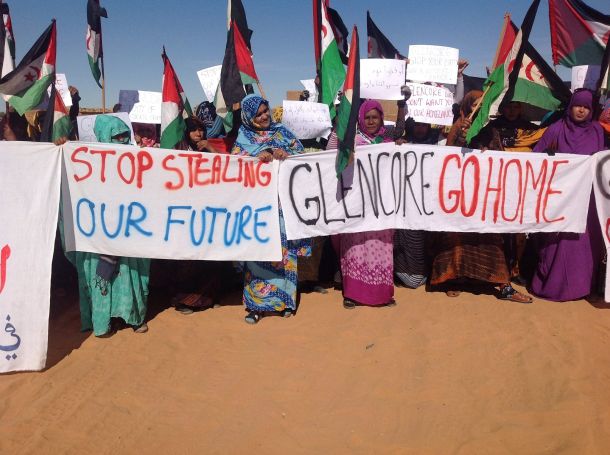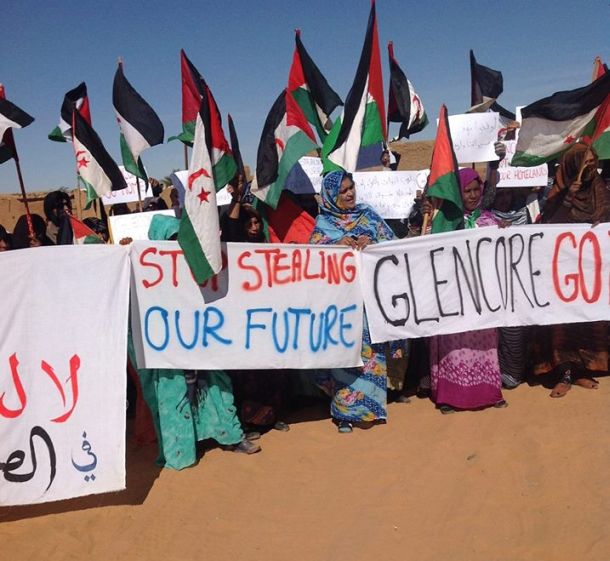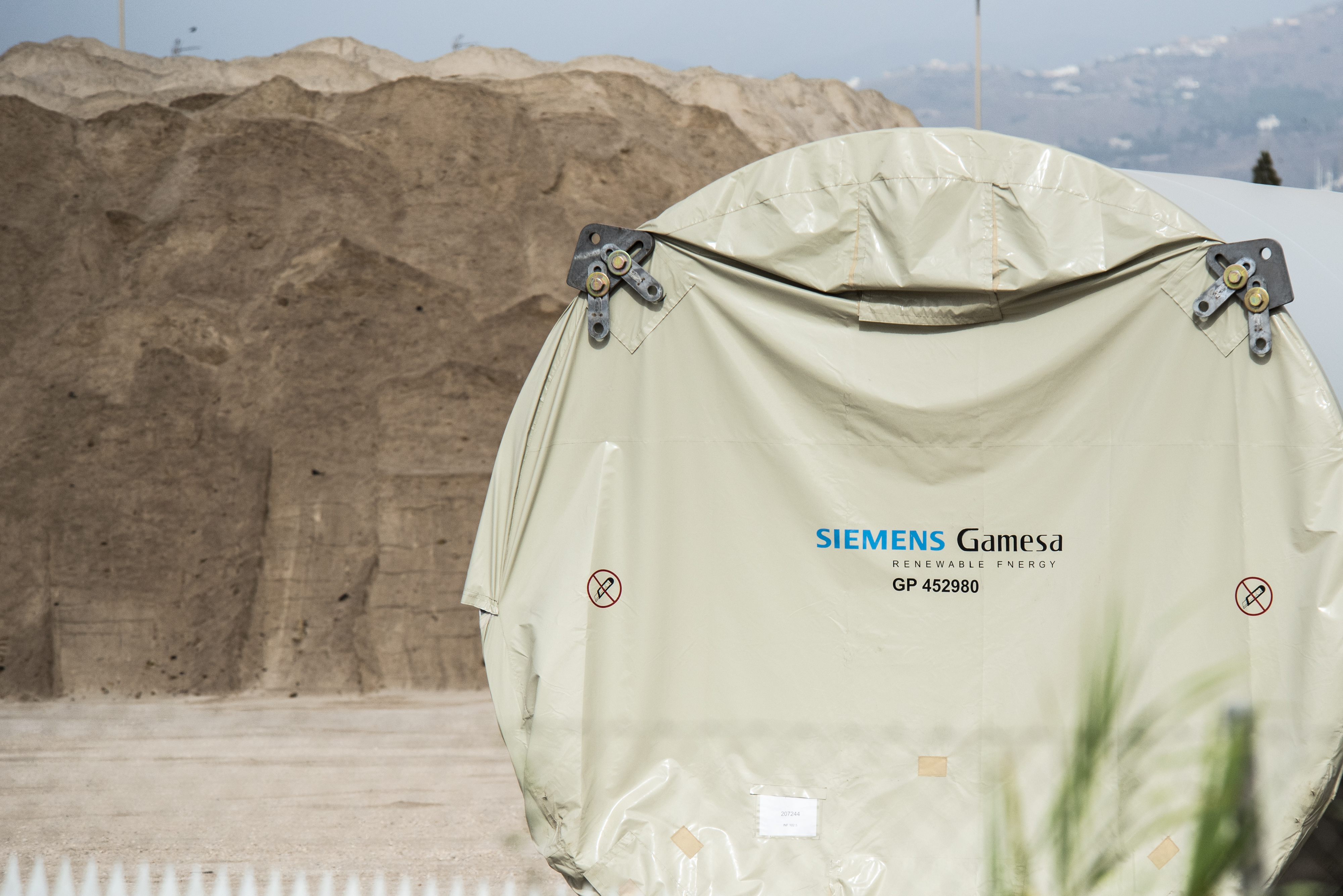
Saharawi refugees yesterday protested against Swiss firm Glencore Plc, looking for oil in their occupied Western Sahara. See photos and videos of the protest here.
Glencore Plc, the Swiss based multinational commodity trading and mining company, holds two exploration licences from the Moroccan government for oil blocks located outside of Morocco's internationally recognised borders: in the part of Western Sahara that Morocco invaded and annexed in 1975.
A large part of the Saharawi people fled Morocco's invasion, and still live in refugee camps in south-west Algeria. In one of those camps, named Dakhla after the town in their homeland, the refugees yesterday 17 March 2015 took to the streets to show their opposition to Glencore's search for oil in Western Sahara. Protesters carried banners saying "Glencore go home", "Stop stealing our future" and "Glencore we don't want you in our homeland".
The oil exploration is in violation of a UN Legal Opinion of 2002, which calls exploration and exploitation of Western Sahara's resources unlawful if not in accordance with the wishes and the interests of the Saharawi people - the original inhabitants of the territory at the time of Morocco's invastion.
The Saharawi people oppose Morocco's oil programme in their occupied land. But nor Morocco, nor its international partners such as Glencore, pay any attention to their wishes.
The UN to date considers Western Sahara to be a Non-Self Governing Territory - a colony yet to complete the process of decolonisation. No State in the world recognises Morocco's untenable claim over the territory. The International Court of Justice has acknowledged the Saharawi people's right to self-determination - the right to determine the status of the territory and its resources - which has been echoed in countless UN Resolutions and backed by the international community.


SRI update
The following overview enlists stock-exchange registered companies with current or recent operations in occupied Western Sahara. Updated 10 April 2025.
Siemens Energy misrepresents EU Court rulings
The German multinational - which supplies the Moroccan energy projects in the occupied territory - fails to grasp EU court rulings.
Brazilian cement giant Votorantim behind sand plunder
WSRW was present as the Brazilian company Votorantim last week received a cargo of sand from occupied Western Sahara in Tenerife, Spain.
Engie starts power production on occupied land
WSRW strongly condemns Engie's blatant disdain for international law in occupied Western Sahara.


